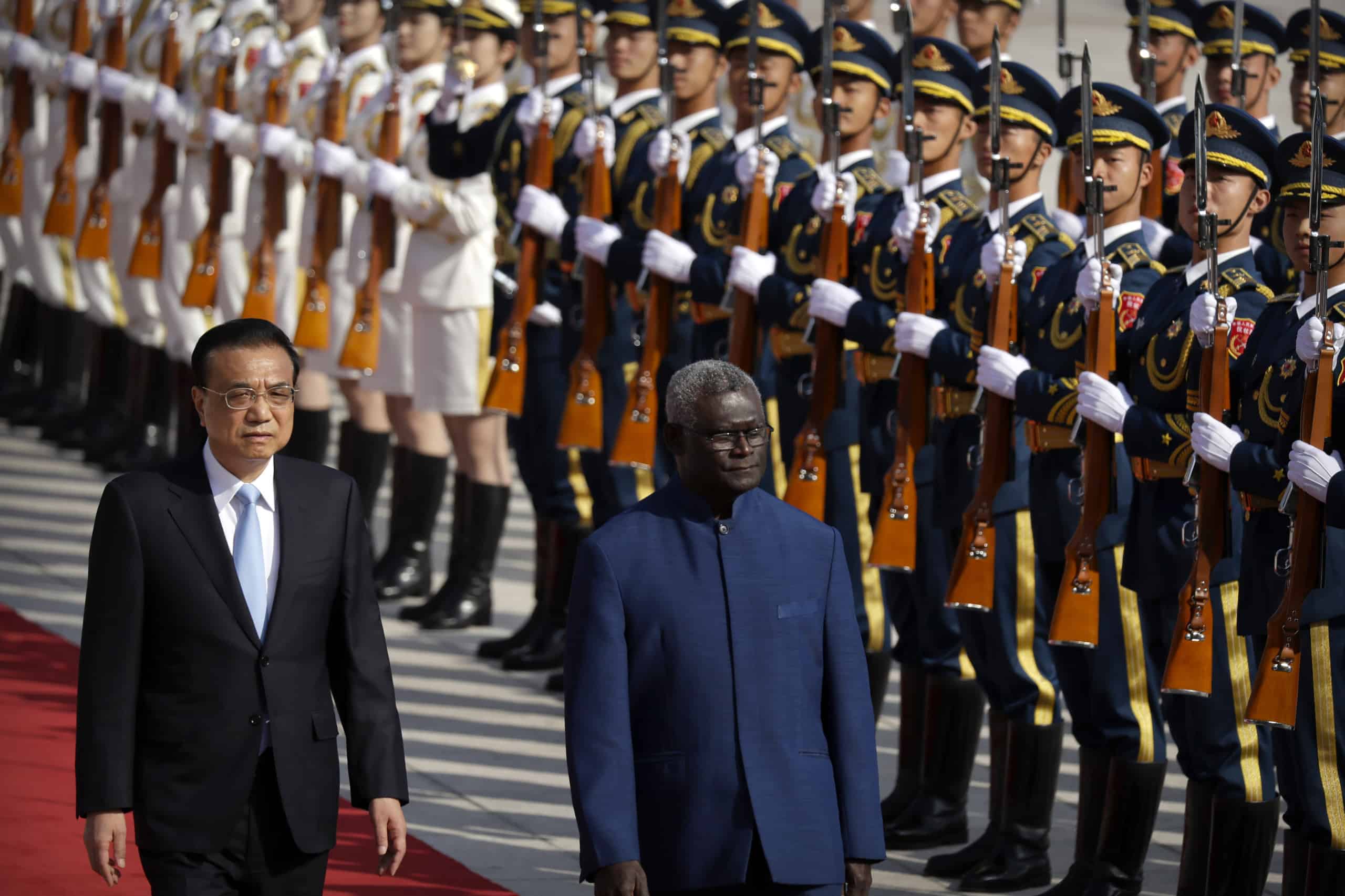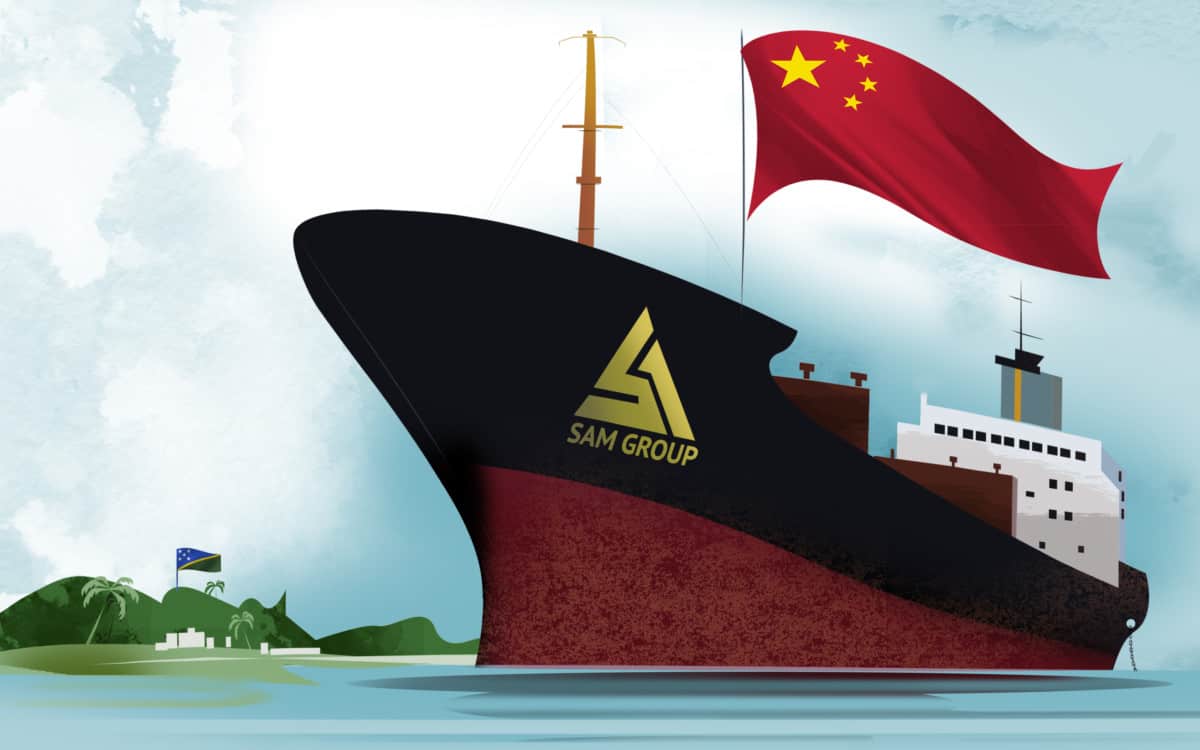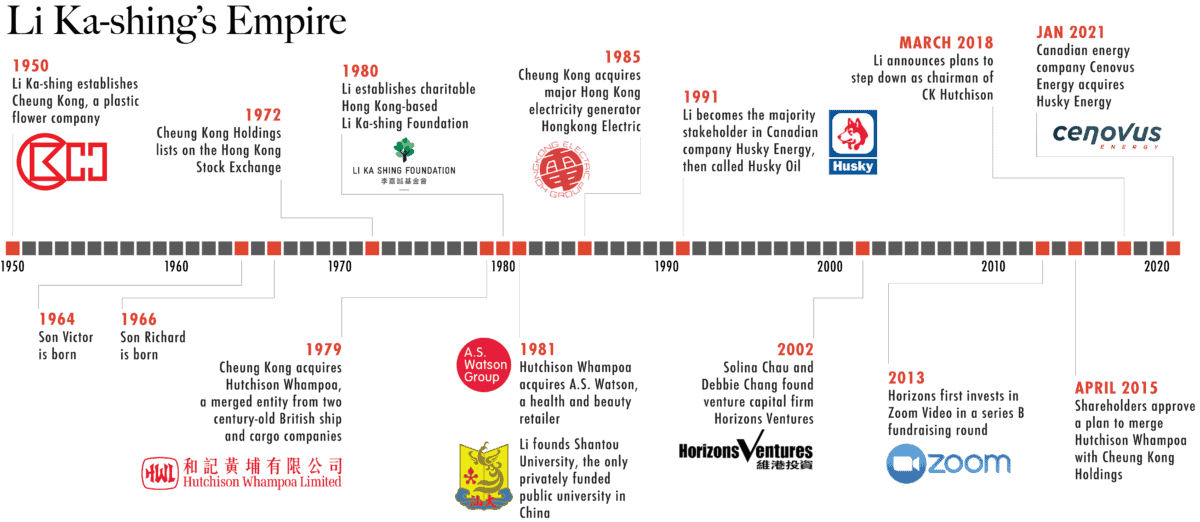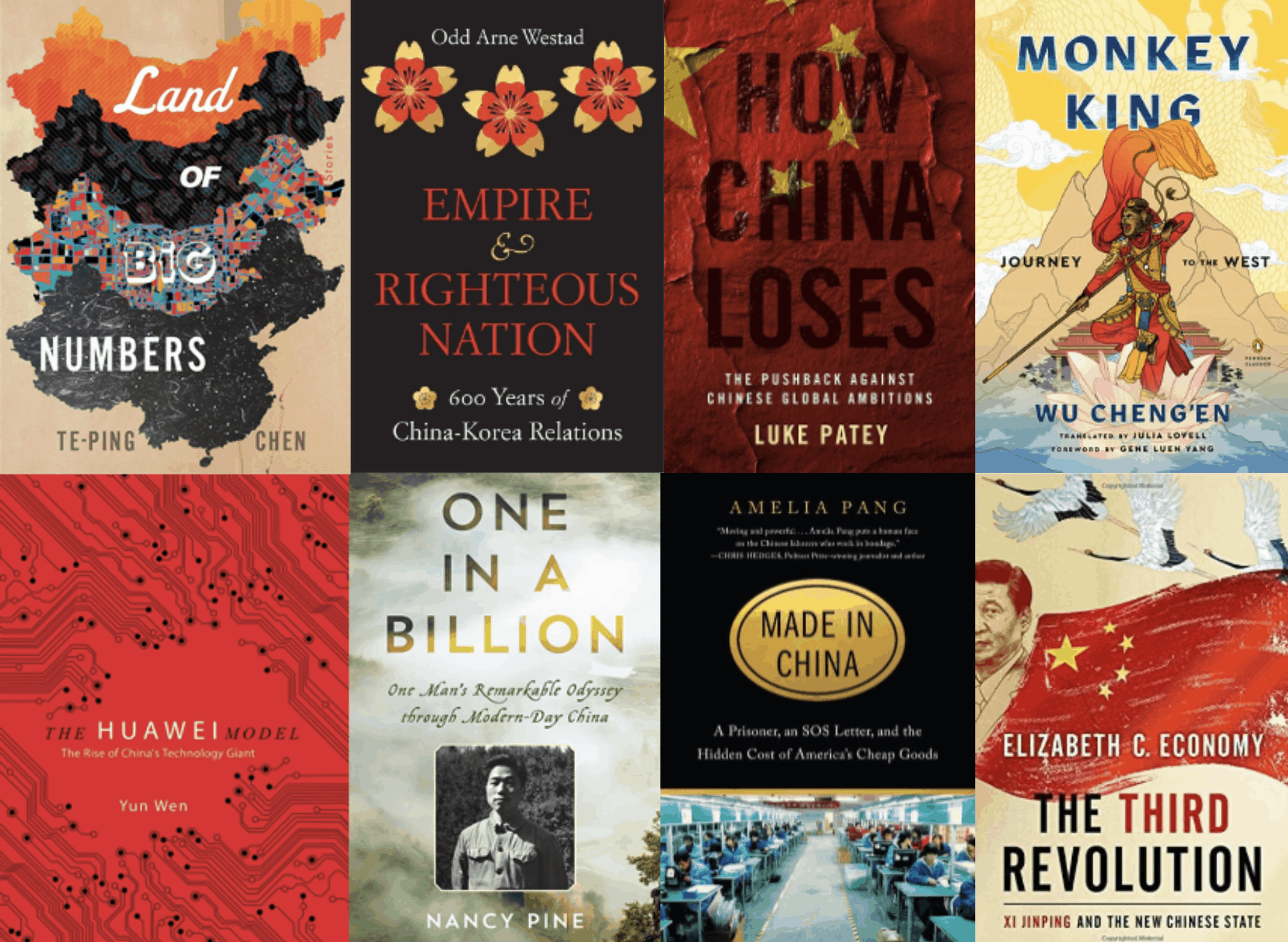
Credit: AP Photo/Mark Schiefelbein
Good evening. Any 20th century history buff knows how strategically important small Pacific islands can be. So while it’s no surprise Beijing is interested in having a foothold in Oceania, its methods for accomplishing that, as this week’s cover story shows, are…unconventional. Elsewhere, we have Alec Ash’s roundup of the best new China books; a big picture look at Li Ka-shing’s giant empire; an interview with Anja Manuel on how the U.S. should deal with the growing tech competition with China; and an op-ed from the halls of M.I.T. arguing for more guidance for U.S. universities. If you’re not already a paid subscriber to The Wire, please sign up here.
Want this emailed directly to your inbox? Sign up to receive our free newsletter.

Deep State, Inc.
Last year, a nixed deal between the Solomon Islands and Sam Group, a Chinese conglomerate, offered a rare window into how Chinese companies often work in tandem with, and sometimes on behalf of, Beijing. Indeed, as Alex Palmer shows in this week’s cover story, Sam Group is emblematic of a little understood class of companies that increasingly define the Chinese economy, especially when it reaches outside China. Existing in a murky space between private and public, these companies raise uncomfortable questions about the international expansion of China’s model of Party-state capitalism.

The Big Picture: ‘Superman’ Is Still Flying High
In March 2018, Li Ka-shing announced he would be stepping down as chairman from Cheung Kong, the manufacturing company that made him, for a time, the richest man in Asia. After nearly seven decades at the helm, Li moved into a new role called senior advisor, and his son Victor Li rose to replace him. As a Hong Kong billionaire, his assets now lie, in large part, overseas. This week, The Wire looks at his empire, and how his bet on Zoom turned out.

China Books for the New Year
With the ushering in of the year of the Ox, a fresh crop of books has also arrived. The top pick from our books columnist, Alec Ash, is a collection of short stories that offers insight into the interplay of Chinese politics and society. The shortlist includes arguments about global pushback to China’s rise; the human price of some made-in-China goods; and personal, international and corporate narratives that speak to a larger story of China’s history and its future in the Xi era.
A Q&A With Anja Manuel
Anja Manuel, a former diplomat, is a director of the Aspen Security Forum and co-founder and principal of the strategic consulting firm Rice, Hadley, Gates & Manuel LLC, with former Secretary of State Condoleezza Rice, former National Security Advisor Stephen Hadley and former Secretary of Defense Robert Gates. She writes extensively about China’s rise as a technology power. In this week’s interview with David Barboza, she explains how the U.S. can start playing offense and why it can’t just ‘export control’ its way out of a tech competition with China.
Anja Manuel
Illustration by Kate Copeland

Credit: Ken Lane, Creative Commons
The Open University
In this op-ed, Richard Lester, an associate provost for international activities and professor of nuclear science and engineering at the Massachusetts Institute of Technology, makes an urgent request of the U.S. government: When it comes to China, help us help you. After decades of building ties with China, he says, universities are unsure how to deal with the growing calls to decouple the U.S. and Chinese economies, especially in science and technology. The wrong response, he argues, could end up badly damaging the roots of American scientific and technological strength, including the openness of our universities.
Subscribe today for unlimited access, starting at only $19 a month.




